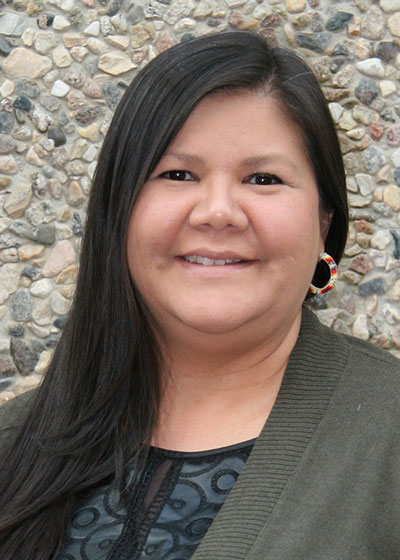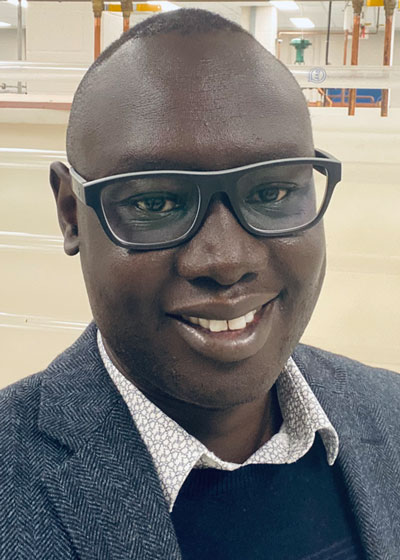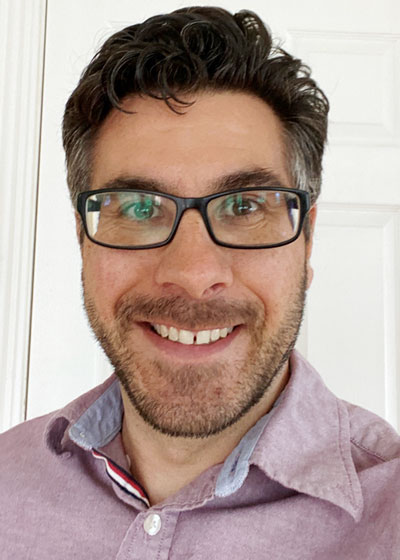
2021 University Staff Excellence Awards Winners
The University Staff Excellence Award recognizes staff members who have achieved excellence while demonstrating dedication and commitment to the university’s Mission, Vision and Values and support of the University Plan 2025. In 2021, the program gave special recognition to those individuals who made exceptional contributions through the unexpected challenges of the pandemic, enabling the university to succeed through these extraordinary times.
2021 Recipients
- Yvette Arcand, Acting Director, the Indian Teacher Education Program, College of Education
- Wendy James, Manager, Professional and Curriculum Development, Gwenna Moss Centre for Teaching and Learning
- Majak Mapiour, Chemical and Biological Engineering Laboratory Coordinator, College of Engineering
- Kurtis Swekla, Acting University Veterinarian and Director of Animal Ethics, Office of the Vice President Research
- Carrie Verishagen, Director, Eat Well Saskatchewan, College of Pharmacy and Nutrition

Yvette Arcand
Acting Director of the Indian Teacher Education Program
College of Education
Yvette Arcand, acting director of the Indian Teacher Education Program (ITEP), is a strong advocate for Indigenous students and has positively impacted thousands of Indigenous and non-Indigenous families, many of whom would not have overcome the external challenges to get through post-secondary education without her commitment to guiding them.
Arcand, who is from the community of Beardy’s and Okemasis Cree Nation within Treaty 6 territory, started her education journey at USask in 1991 as an ITEP student in the College of Education and has worked for the program for the past 22 years in various roles, including currently as the acting ITEP director.
Arcand demonstrates an incredible capacity to listen, reflect and offer support in a way that embodies respect for students and staff. She values students and staff as lifelong learners and as people on a journey to self-improvement and self-appreciation. She is a role model, a mentor and in some cases, a surrogate family member who students can rely on for empathetic support and guidance when facing difficulties during their educational journeys. Her strong work ethic, along with her commitment to the revitalization of language and culture, continues to establish ITEP as one of the leading Indigenous educational programs in Canada.
During the pandemic, Arcand stepped into the acting director role for the ITEP program and demonstrated the flexibility and focus required to overcome the unique complexities of the COVID-19 academic years. Her transition was smooth and her top priority was to ensure all students, staff and program instructors felt supported. She routinely exceeds what would normally be expected of her in her role to ensure students are supported spiritually, mentally, physically and emotionally and she continues to be present for ITEP students as they make their transition into the workforce.
The switch to remote learning was especially difficult for the ITEP program, in which cultural protocols rely on in-person gatherings. Arcand was instrumental in innovating changes. She worked to find ways to hold small gatherings with Knowledge Keepers that could be shared virtually with students to ensure that this cornerstone of the ITEP program could remain in place. This was no small feat, given the need to maintain social distance and to request permissions whenever any small gatherings were held.
Arcand is also a trusted voice for on-campus initiatives. She co-chairs the Indigenous Advisory Circle that informs the Office of the Vice-Provost Indigenous Engagement and serves as a space for Indigenous advisors and staff members to share ideas and support each other.

Wendy James
Manager of Professional and Curriculum Development
Gwenna Moss Centre for Teaching and Learning
Wendy James, manager of professional and curriculum development, Gwenna Moss Centre for Teaching and Learning, is motivated by the goal of providing all USask students with inclusive, fair and effective learning experiences that allow everyone to thrive and reach their full potential.
Through her work, she exemplifies courageous curiosity, by challenging instructor and faculty members to explore new ways of teaching and assessing learning. She has embraced boundless collaboration, always working as a partner to help units to see new possibilities and take new approaches to their programs and courses. Her work and her enthusiasm for all that she does, inspires the communities with whom she engages.
As the USask community transitioned in March 2020 because of the COVID-19 pandemic, James anticipated the needs of the teaching community and immediately. Through evolving conditions and directions, she leveraged the strengths of the GMCTL team and collaborated with partners in the Distance and Education Unit (DEU), ICT Services and Media Production to develop and launch the USask Remote Teaching website within a three-day period. She provided leadership that was integral in the institutional-wide successful delivery of remote education as she initiated the creation of customized videos, the delivery of 138 synchronous remote sessions, the serving of 1,387 individual participants and the delivery of tailored sessions to 61 colleges and departments.
During this same time, the university’s new learning management system, Canvas, was continuing to be implemented. James’s involvement on the delivery team ensured the Canvas rollout with ICT was achieved on schedule, and she also anticipated and accelerated support to instructors as the implementation of Canvas became vital for effective remote teaching and learning. Her effective rapid response strategies during the last year have impacted all levels of teaching and learning at the university.
James is a committed team member and participates in a regular talking circle where the team embraces an Indigenous approach to community/team connection, reflection and well-being. She strategically engages project-based teams that prioritize individual strengths and interests, providing choices and alternatives along the way. She values the staff with whom she works and cares deeply about them as people. She advocates for collaborative and supportive working conditions and prioritizes staff well-being. Staff openly share that James has helped them during times of threatening burnout, mental health concerns and leaves, floundering projects and complex interactions and she navigates complex issues and situations with strategy, clarity and ethical consideration.
James works in ways that not only demonstrate the principles and values of the University of Saskatchewan, but that inspire others to act accordingly. The university, faculty, staff and students have benefited enormously from her committed service.

Majak Mapiour
Chemical and Biological Engineering Laboratory Coordinator
College of Engineering
Majak Mapiour, a laboratory co-ordinator in the Department of Chemical and Biological Engineering, has made significant contributions to improve experiential learning in a safe and engaging manner by revamping and restructuring the experiments that all undergraduate chemical engineering students perform.
Mapiour received his Bachelor of Science in Engineering and Master of Science in Chemical and Biological Engineering at USask in 2007 and 2010, respectively and has worked on campus since 2016 as lab co-ordinator, which involves overseeing more than 20 individual research laboratories, two pilot-scale research spaces and an instrumentation laboratory.
During the COVID-19 pandemic, Mapiour took a leadership role in making sure every senior-level student received the hands-on laboratory experience needed to complete their courses. His role included initial development of instructional videos, seeking feedback from the department head and faculty instructors and associated revisions, scheduling and co-ordination of laboratory sessions. He also served as a co-instructor and was instrumental in the successful delivery of these courses, which included developing 12 experiments for online delivery. He also delivered an in-person lab course for 18 students during the Winter 2021 term. This course was one of the first in the college to be offered in-person after the university closure due to Covid-19. Extensive planning and safety preparation was done to deliver this course safely and responsibly.
Mapiour also participates in the development of health and safety policies and the implementation of safety protocols in the undergraduate and research laboratories. He has served as the vice-chair of the Chemistry and Biological Engineering safety committee and as a member of the College of Engineering's local safety committee. Mapiour has substantially contributed to achieving this goal through his involvement in the renovation of the Chemical and Biological Engineering undergraduate laboratory and its affiliated spaces, acquiring and incorporating new experimental systems, revamping existing experiments development and/or renewal of instructional materials, especially digital media such as online videos that are easily accessible to our students.
Mapiour’s significant contributions to the department, before and during the pandemic, have significantly strengthened the Chemical and Biological Engineering program and gives the students the hands-on experience they need for their future careers.

Kurtis Swekla
Acting University Veterinarian and Director of Animal Ethics
Office of the Vice President Research
Kurtis Swekla has made an exceptional contribution to animal-based research at the University of Saskatchewan through the unexpected challenges of the pandemic.
In his role as acting university veterinarian and director of animal ethics, he ensured vital animal research continued during the shutdown and that these animals receive high-quality care. Due to his efforts, research projects continued with minimal unnecessary loss of animal life. Some other Canadian research institutions had to make the very difficult decision to cull large numbers of animals due to reductions in available staff required to provide daily animal care, or due to lack of facility access for researchers to collect data from their animals at the appropriate time. Swekla prevented this from happening at USask by ensuring researchers who were in the middle of projects were granted access to campus to complete their work. He ensured that researchers were able to continue conducting high-quality research, thus attracting new researchers and novel collaborative projects to USask.
Swekla has been fundamental in facilitating vital COVID-19 research at the Vaccine and Infectious Disease Organization (VIDO), including vaccine development and testing, by ensuring timely processing of ethics reviews, acquisition of animals for research and return of essential research staff to work on campus. He developed practical contingency plans to allow ongoing data collection and animal care, should a COVID-19 outbreak occur. This commitment to facilitating outstanding research that addresses the needs of the global community is in line with USask’s vision for a sustainable future and is fundamental for the university to be an outstanding institution of research.
Swekla was a key member of the university’s Crisis Operations Team and helped established plans for essential staff to return to work in a manner that minimized the risks of viral spread among staff and to the broader community, and also put in place contingency plans should an outbreak occur among critical staff at any of the animal units.
Swekla’s leadership has allowed him to enhance the work environment of his team, and he has worked hard to ensure that the workplace is respectful, inclusive and collegial. Further, he has shown a commitment to the well-being of team members through providing means to remain connected during a period of unprecedented physical distancing and accommodations to meet the needs of those with small children or health concerns. He understands the importance of maintaining a healthy work-life balance and actively encourages team members to ensure they set appropriate boundaries between home and work, encouraging them to take time for self-care.

Carrie Verishagen
Director, Eat Well Saskatchewan
College of Pharmacy and Nutrition
In her role as director of the Eat Well Saskatchewan (EWS) service in the College of Pharmacy and Nutrition, Carrie Verishagen took a small pilot project and turned it into a vital resource for Saskatchewan residents, in particular Indigenous peoples, through her initiative and innovation.
Eat Well Saskatchewan is a dietitian contact centre that services the province with free, credible nutrition advice. It is a partnership between the College of Pharmacy and Nutrition and Indigenous Services Canada. In response to the Truth and Reconciliation Commission’s calls to action to close gaps in health outcomes for Indigenous communities, EWS aims to decrease health inequalities and the burden of chronic disease.
Verishagen, a registered dietitian, exemplifies the university’s vision of reconciliation and the inclusion of Indigenous peoples and communities. To take an inclusive approach to deliver quality nutrition education, she develops innovative methods to capture the importance of Indigenous peoples’ knowledge by sharing their personal stories about food and nutrition. By utilizing Indigenous storytelling, Verishagen responded to the unique needs of Indigenous people, positioning the program and the university as a trusted community partner, and motivating people to make positive healthy eating changes.
As part of the University Plan 2025’s commitment to courageous curiosity, Verishagen emerged as a leader in seeking solutions during the pandemic. When the pandemic took hold in March 2020, social media was overwhelmed with harmful nutrition misinformation. Verishagen took a collaborative approach by forming a dietitian’s support group with Indigenous partners to help address these issues. She engaged the community by utilizing social media to combat misinformation surrounding COVID-19 and, as a result, her team was awarded a Saskatchewan Health Research Foundation COVID-19 rapid response grant, which was used to develop a social media campaign that reached more than 130,000 people. As part of this #eatwellcovid19 campaign, she collected personal stories from residents and highlighted how they coped with the challenges of COVID-19.
Verishagen’s leadership has captured provincial and national attention. She has conducted several radio and television interviews, increasing the exposure of this essential health care issue. She has also appeared in the House of Commons before the Standing Committee on Indigenous and Northern Affairs to present information about food insecurity in northern communities and the value of the EWS service. Her witness statement embodies USask’s values of innovation, creativity, diversity and integrity and inspired dietitians across the country.
In addition to the commitment and dedication to the EWS program, Carrie provides experiential learning opportunities for nutrition students. She mentors students on research projects, through internship placements, student projects and as a guest lecturer. She is constantly providing learning opportunities, support, and feedback, to elevate future dietitians in her profession. Her contributions are significant, lasting enhancements to the nutrition and dietetics program. These achievements demonstrate the university’s mission to prepare students for enriching careers.
